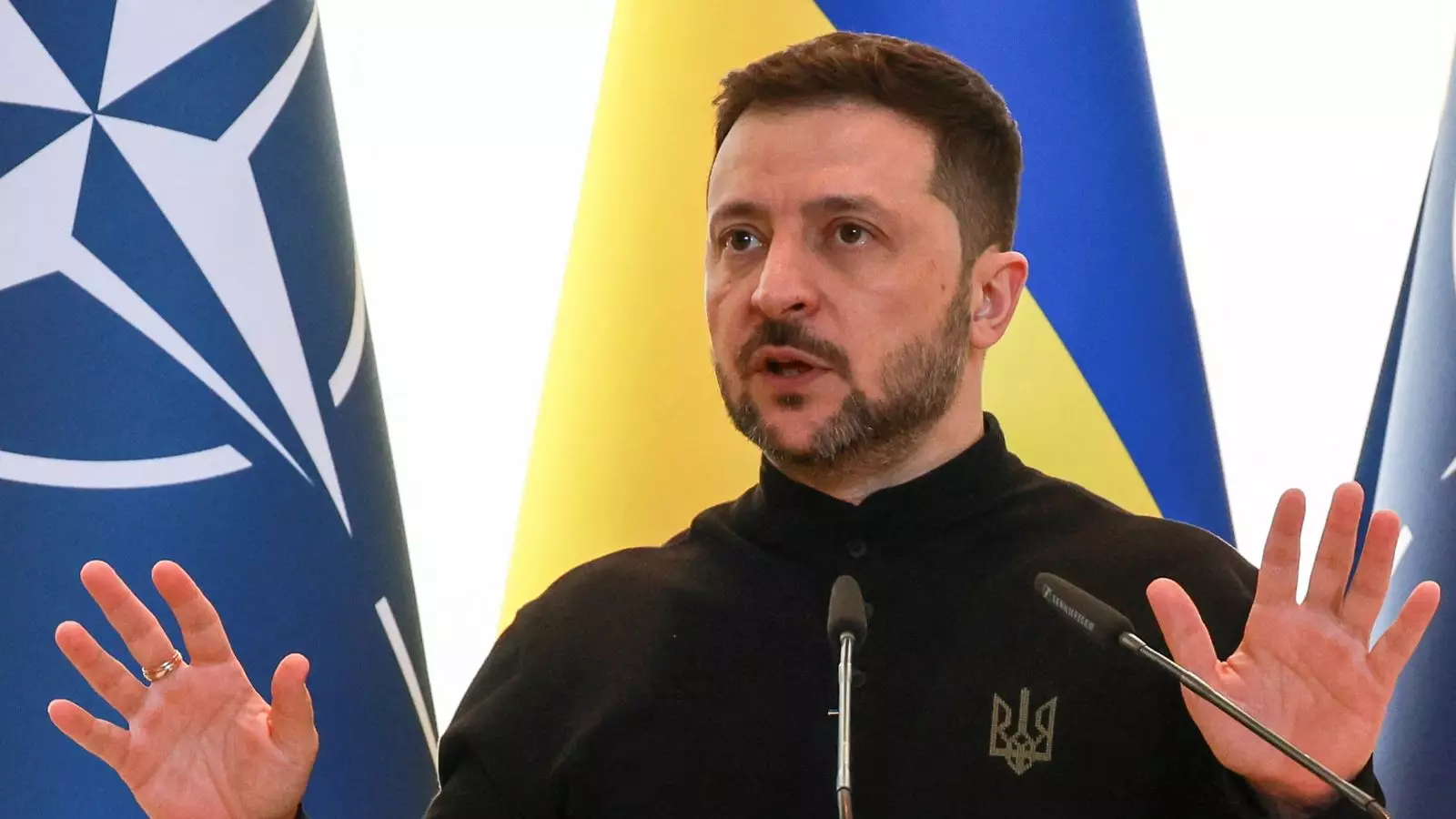The recent phone conversation between Sir Keir Starmer and Ukrainian President Volodymyr Zelenskyy was framed as a reassuring dialogue about finding a path to peace amid the turmoil sparked by Russia’s invasion of Ukraine. Starmer, echoing a commitment that many in the UK government have articulated, emphasized his “iron-clad support” for Ukraine’s sovereignty. While such declarations are essential, one must critically assess the ramifications of these discussions in light of the broader geopolitical context. The urgent calls for a ceasefire and a more permanent resolution tend to paint over the grim realities: a calculated war of attrition from Russia that shows no signs of abating.
Putin’s Opportunism: The Masks We Wear
Vladimir Putin’s recent overture towards “bilateral talks” regarding a ceasefire cannot simply be brushed off as a genuine peace initiative. On the surface, his mention of Easter as a backdrop for dialogue may invoke imagery of peaceful redemption; however, lurking beneath this facade is a history of manipulation and promises unkept. Promising a truce, only to have those terms violated over 2,000 times, suggests a strategy of psychological warfare that aims to buy time for further territorial gains or to consolidate power domestically amidst faltering military campaigns. Let’s face it: Putin is no stranger to bargaining tactics designed not to forge peace but to maintain a veneer of legitimacy while continuing his aggression.
The Hypocrisy of Mixed Messages
As the West responds to Putin’s proposal for extended discussions about peace, the disparity in messaging raises significant eyebrows. While leaders like Trump hint at a transactional approach to peace, entreating Ukraine to quickly resume business as usual with the United States, the implications of such claims cannot be ignored. America could be perceived as a catalyst for peace, but it risks enabling autocratic regimes like Russia by prioritizing economic frameworks over human rights and sovereignty. This balance needs reassessment; the current geopolitical chessboard witnesses not just a struggle for territory but a battle for the moral high ground.
The Perils of a Fragile Ceasefire
Both Starmer and Zelenskyy were keen to push back against the perception that a tentative ceasefire could be sufficient for longer-term stability. While it is commendable that high-stakes conversations are initiated, one must remain astutely aware that ending hostilities is not synonymous with achieving peace. The 30-hour Easter truce—flawed from the outset—underscores that any semblance of security can easily be shattered by a rogue missile or military miscalculation. Peace discussions must not just be about pauses in violence but about dismantling the structures that incite hostility in the first place.
A Cautionary Tale: History Repeating Itself
It’s challenging not to recall the patterns from past conflicts while analyzing the current scenario. Historical cycles of ceasefires followed by renewed hostilities paint a picture of a rarely successful formula. The willingness of world leaders to entertain talks without preconditions risks normalizing the very belligerent behaviors they profess to oppose. The truth is evident: engaging with a regime that interprets gestures of peace as weaknesses could lead to yet another missed opportunity for a durable solution.
Seeking Genuine Resolution Beyond Rhetoric
To navigate this quagmire, it is vital that discussions move beyond platitudes and empty reassurances. The resolve to build a “just and lasting peace” requires not only goodwill but also a unified strategy that recognizes the multifaceted nature of conflict. Partnering with allies, being vigilant about false flag operations, and ensuring that humanitarian needs of the Ukrainian people remain at the forefront must be our guiding compass.
The conversation between Starmer and Zelenskyy could be an essential step towards progress—but only if it results in substantive action and not just hollow words. It’s imperative that the West remains united and resolute in its stance against Putin’s tactics, for the path to genuine peace is often strewn with treachery and betrayal. Only by shedding the illusions of quick fixes and engaging in meaningful, accountable dialogue can we hope to pave the way for a future devoid of the shadows of war.


Leave a Reply